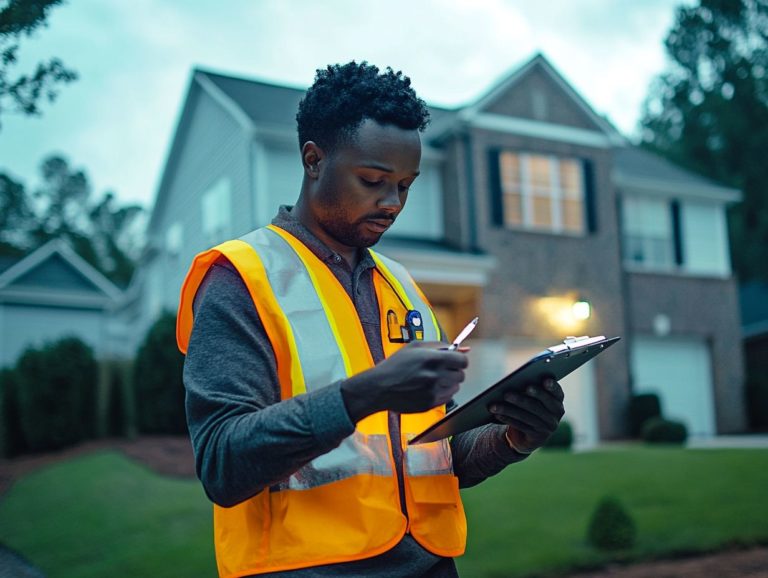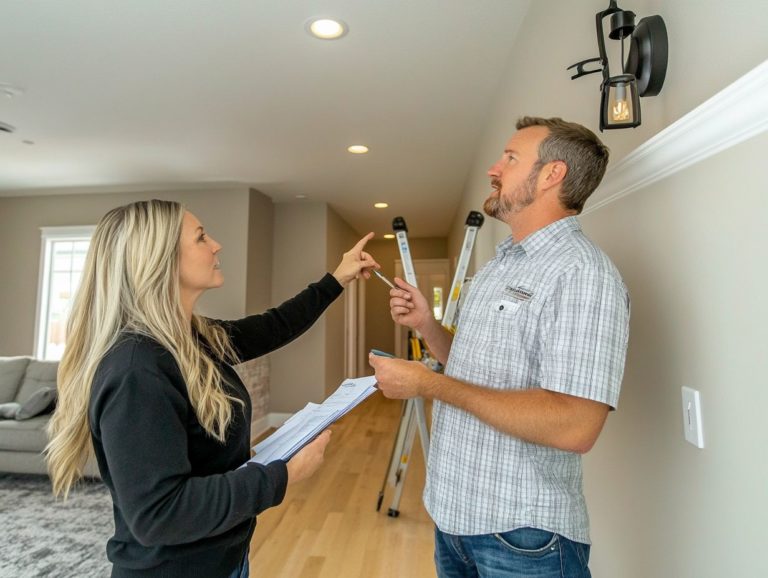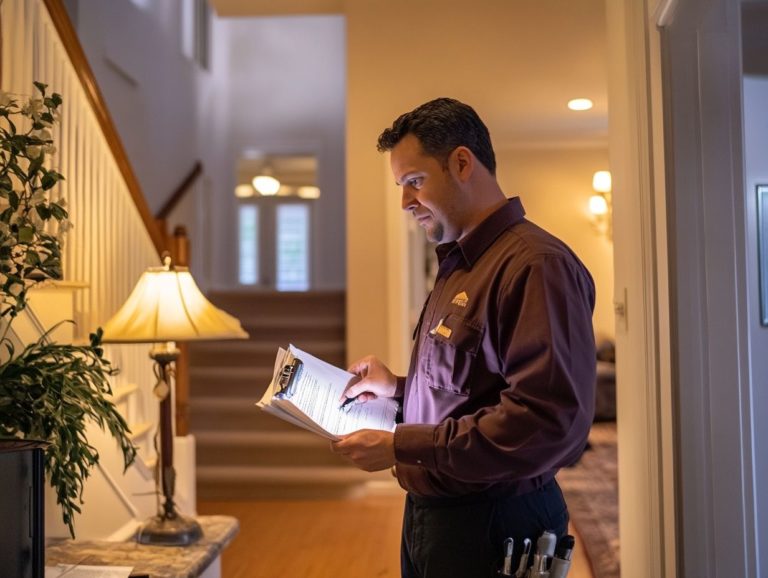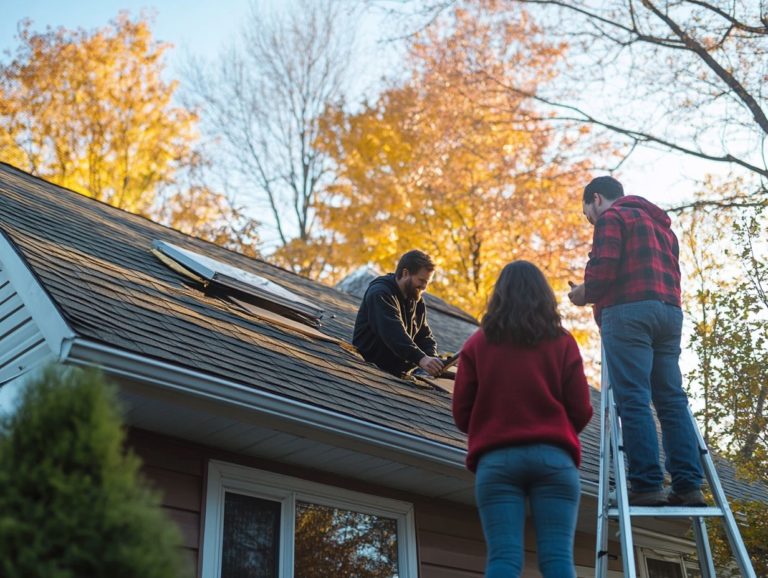Understanding the Home Inspection Process for Sellers
Selling a home can be a thrilling yet intimidating experience. One vital step you might overlook is the home inspection.
A pre-inspection offers valuable insights into potential issues while boosting your home s value and marketability. This article delves into the importance of home inspections, provides practical tips for preparation, and guides you through what to expect during the process. You ll also learn how to address any issues that may arise.
The article will also cover effective negotiation strategies and the inspector’s role. Whether you re a seasoned seller or stepping into the market for the first time, grasping these elements will empower you to navigate the selling process with confidence.
Contents
- Key Takeaways:
- The Importance of Home Inspections for Sellers
- Preparing for a Home Inspection
- What to Expect During a Home Inspection
- Addressing Issues Found During the Inspection
- Negotiating with Buyers After the Inspection
- The Role of the Home Inspector
- Frequently Asked Questions
- What is the purpose of a home inspection for sellers?
- Who is responsible for scheduling and paying for the home inspection?
- What should I expect during the home inspection process?
- Can I be present during the home inspection?
- What happens if issues are found during the home inspection?
- Do I need to disclose the home inspection report to potential buyers?
Key Takeaways:
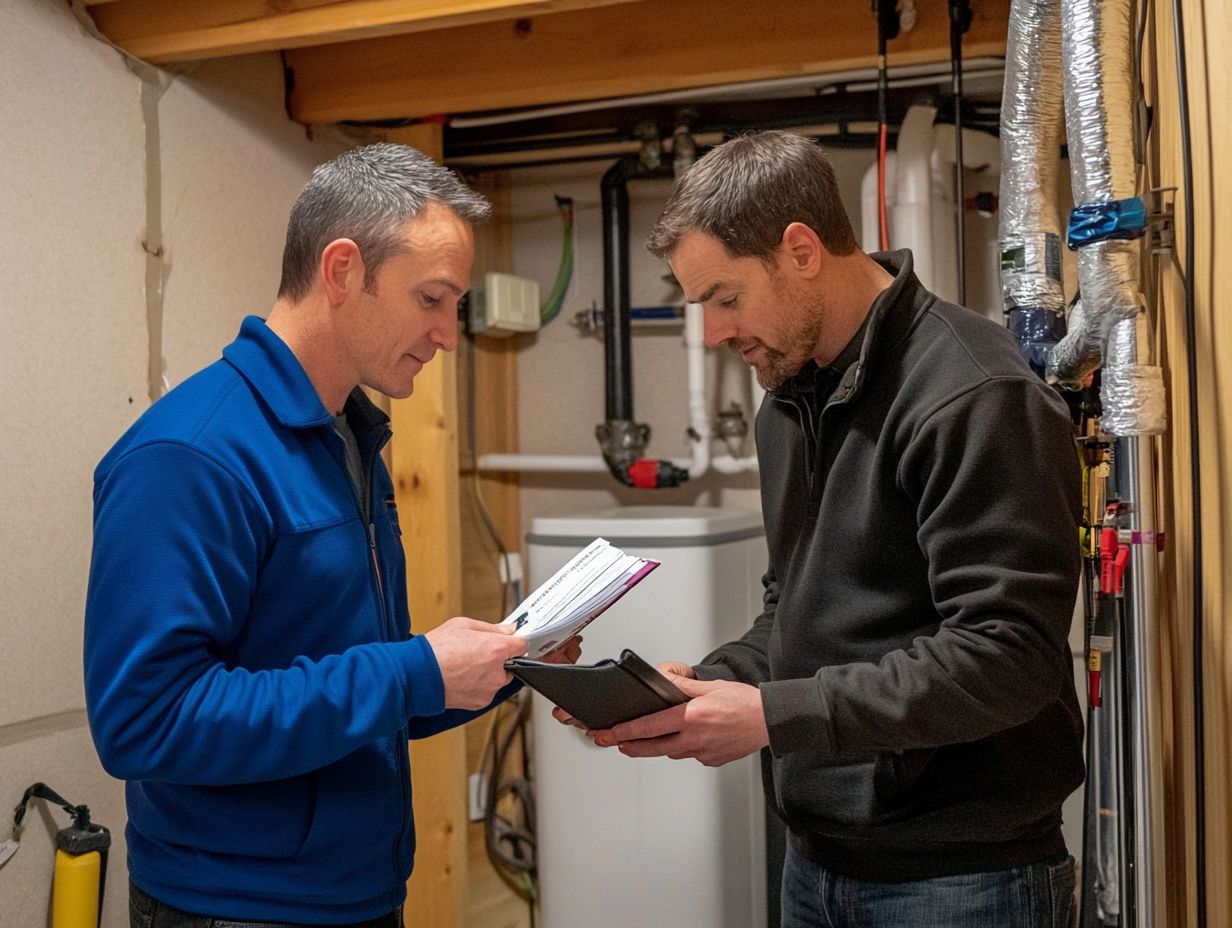
Consider a home inspection as a proactive step to identify and address possible issues before listing your house. Preparing adequately can help prevent delays or surprises during the home inspection process. Understand the inspector’s role and be ready to negotiate with buyers based on their findings.
The Importance of Home Inspections for Sellers
Home inspections are essential in the real estate market, especially for sellers aiming to enhance their property’s value. A comprehensive home inspection helps you understand the importance of home inspections by revealing the overall condition of the home and uncovering potential issues like plumbing or structural concerns that might dissuade prospective buyers.
By securing an inspection report from a certified professional, such as one affiliated with the American Society of Home Inspectors (an organization that sets standards for home inspectors), you can foster transparency and build trust with potential buyers.
This proactive step can help you sell faster! It ultimately paves the way for a smoother home selling experience, even in fluctuating market conditions.
Why Sellers Should Consider a Home Inspection
You should seriously consider a home inspection; it provides invaluable insights into potential buyer concerns and necessary repairs that may pop up during the selling process. For a deeper understanding, check out this guide to the home inspection process.
By identifying issues ahead of time before listing, you can address these problems and eliminate potential points of contention during negotiations. This smart move can lead to a better inspection report, boosting buyer confidence and minimizing the chances of last-minute surprises that could derail a deal.
Being transparent in real estate transactions builds trust between you and potential buyers. It demonstrates your commitment to providing an honest account of the property’s condition. Ultimately, navigating the selling process with clarity and openness can lead to smoother transactions and may even result in a quicker sale!
Preparing for a Home Inspection
When preparing for a home inspection, adopt a meticulous approach to ensure your property shines in its best light. This not only alleviates safety concerns but also addresses potential issues that could impact the sale.
Taking the time to present your home in optimal condition is an investment in a smoother transaction and peace of mind.
Tips for Getting Your Home Ready
Set your home up for inspection success! Adopt practical tips that emphasize thorough preparation and proactive maintenance.
By evaluating various aspects of your property, you can address potential concerns before the inspector arrives. This approach not only paves the way for a smoother inspection process but also helps you understand the home inspector’s role, cultivating trust with potential buyers who will feel more confident in a well-maintained home.
An effective strategy involves creating a detailed inspection checklist, which should include essential items like:
- Checking the roof for leaks
- Inspecting plumbing for any signs of wear
- Reviewing electrical systems for safety
- Ensuring that all appliances are in working order
By diligently performing these tasks, you will enhance your home’s appeal and minimize safety issues that could otherwise derail a sale.
Take these steps, and you ll be well on your way to a successful home sale!
What to Expect During a Home Inspection
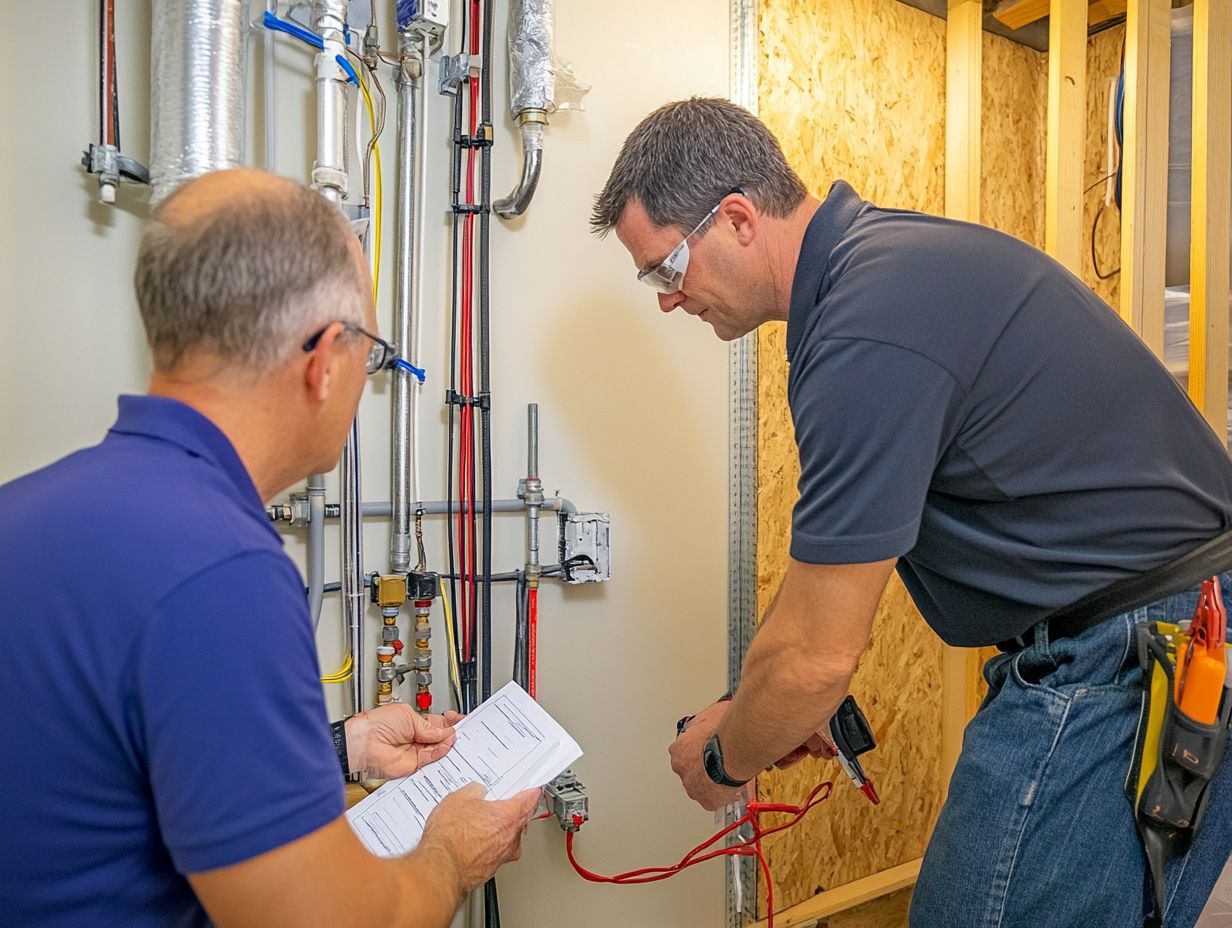
Grasping what to expect during a home inspection is essential for both sellers and buyers.
The inspection process plays a significant role in shaping negotiations and final decisions regarding the property.
Being well-informed gives you the power to navigate this critical phase with confidence and clarity.
Step-by-Step Guide to the Inspection Process
A step-by-step guide to understanding the home inspection process can be your trusted companion as you navigate the complexities involved in real estate transactions.
This includes choosing a good inspector and carefully going over the inspection report.
Arming yourself with a comprehensive inspection checklist is an invaluable strategy for both buyers and sellers.
This checklist highlights critical areas to focus on, such as:
- Plumbing
- Electrical systems
- Roof conditions
Understanding the inspection results is crucial; they unveil potential safety concerns and give you the power to make informed decisions about necessary repairs or price adjustments.
Addressing Issues Found During the Inspection
Addressing the issues uncovered during a home inspection is crucial for you as a seller.
These findings can significantly sway buyer requests and shape the entire negotiation process.
Options for Dealing with Problems
When you encounter issues highlighted in the inspection report, you have several pathways for remediation.
One option is to make the necessary repairs to the property, which helps restore buyer confidence and enhances the overall value of your home.
Alternatively, you might consider offering credits to the buyers, allowing them to tackle issues after the purchase according to their preferences.
Engaging in negotiations with the buyer’s agent can also be a smart move.
It s crucial to maintain effective communication with your own agent; keeping the dialogue open fosters a collaborative approach to finding an agreeable solution.
Negotiating with Buyers After the Inspection
Negotiating with buyers post-inspection is a nuanced process that demands your attention.
You need to address their concerns thoughtfully while safeguarding the seller’s interests.
Tips for Successful Negotiations
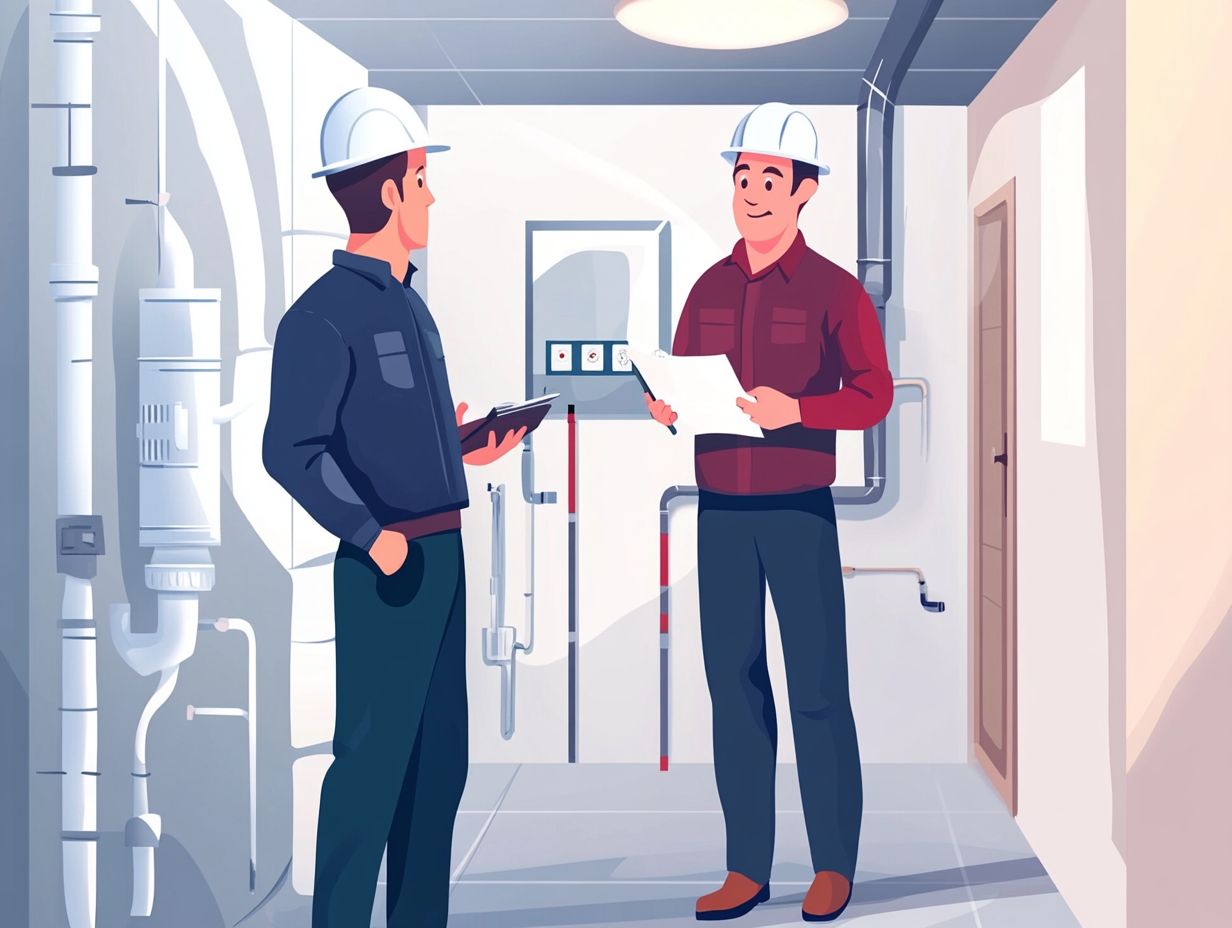
Successful negotiations following a home inspection depend on clear communication and a deep understanding of both the seller’s and buyer’s motivations.
To navigate this nuanced phase, you must approach requests with a genuine willingness to find common ground.
By meticulously reviewing the inspection report, you can pinpoint the buyer s most pressing concerns.
Collaborating closely with the buyer’s agent can also prove beneficial; fostering a spirit of cooperation can lead to fruitful discussions.
This partnership enables both parties to explore solutions that address everyone s concerns, whether that means opting for repairs, offering credits, or adjusting the price.
The Role of the Home Inspector
The role of the home inspector is crucial in any real estate transaction.
You can rely on them to provide a thorough assessment of the home’s condition, adhering to the rigorous standards established by the American Society of Home Inspectors.
Their expertise ensures that you have a clear understanding of the property’s state, giving you the power to make informed decisions.
Understanding the Inspector’s Perspective
Understanding the inspector’s perspective can provide valuable insights during the home inspection process, whether you’re buying or selling your home.
An inspector s evaluation is meticulous, guided by a specific checklist that prioritizes safety and structural integrity. They assess crucial elements such as the roof, plumbing, electrical systems, and heating and cooling units, while looking for signs of damage or deterioration.
By pinpointing potential hazards like faulty wiring or inadequate ventilation inspectors strive to safeguard the well-being of future occupants.
Their observations culminate in a final inspection report, which becomes an essential tool for negotiating repairs or ensuring that all parties are aware of the property’s condition before closing the deal.
Frequently Asked Questions
Here are some common questions about the home inspection process that sellers often ask:
What is the purpose of a home inspection for sellers?
The purpose of a home inspection for sellers is to identify potential issues or defects in the property before it is put on the market. This allows sellers to make necessary repairs or disclosures to potential buyers by understanding the home inspection process, helping to prevent delays or legal issues during the selling process.
Who is responsible for scheduling and paying for the home inspection?
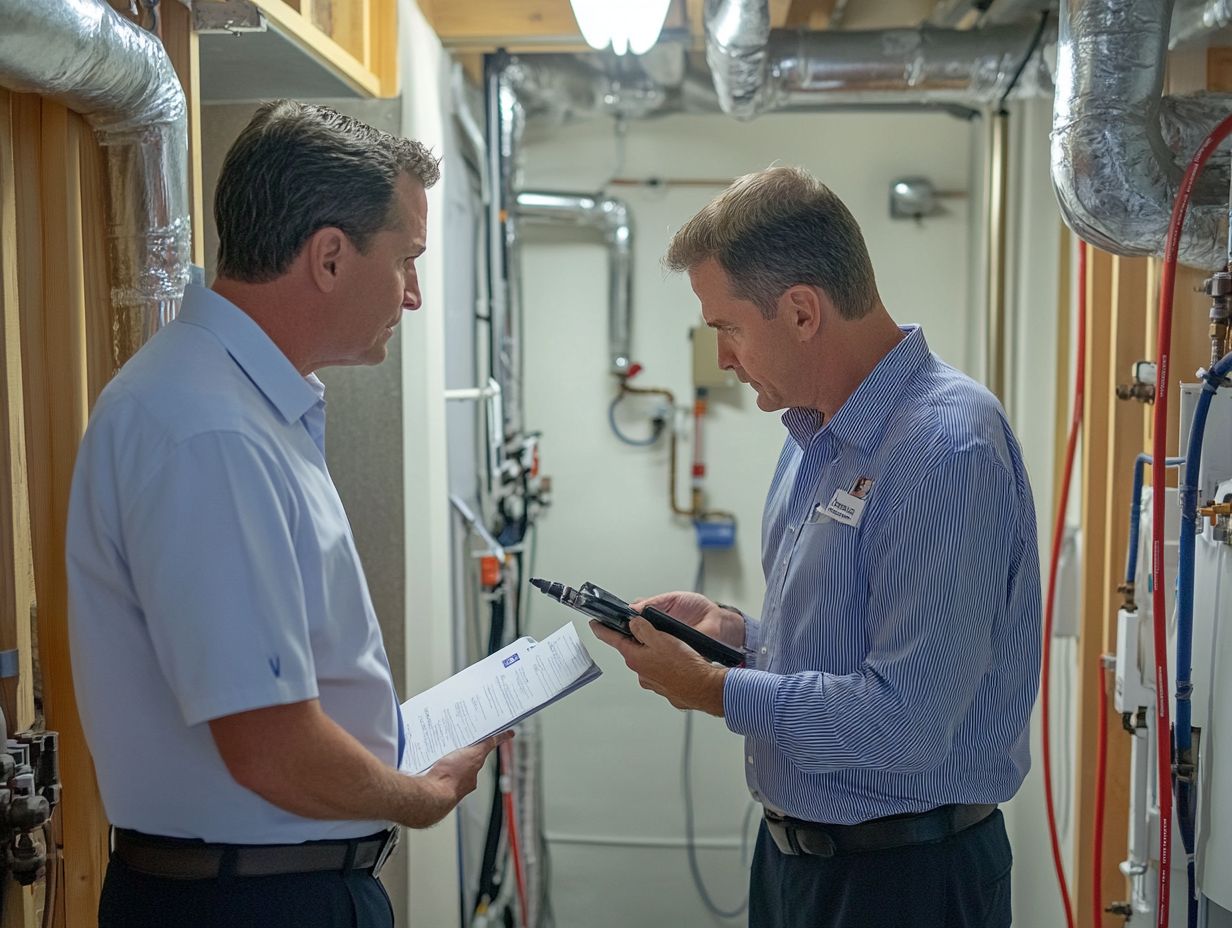
As the seller, it is your responsibility to schedule and pay for the home inspection. While this is typically done after an offer has been accepted, it is recommended to have the inspection completed before listing your home. For more insights, including understanding the home inspection timeline, the cost can vary but often ranges in the hundreds of dollars.
What should I expect during the home inspection process?
The home inspector will thoroughly examine the property, including the interior, exterior, and major systems such as plumbing, electrical, and HVAC. They will also look for potential safety hazards or code violations. After the inspection, the inspector will provide a detailed report of their findings.
Can I be present during the home inspection?
Yes, as the seller, you are allowed to be present during the home inspection. However, it is recommended to give the inspector space to do their job and only ask questions or provide information if necessary. This approach makes the process more efficient and less overwhelming for both parties.
What happens if issues are found during the home inspection?
If issues are identified during the home inspection, it is up to you as the seller to decide how to address them. You may choose to make the necessary repairs, provide a credit to the buyer for the cost of repairs, or disclose the issues and sell the property as-is.
Do I need to disclose the home inspection report to potential buyers?
Yes, as part of the disclosure process, you are required to provide potential buyers with the home inspection report. This allows them to make an informed decision about purchasing the property and helps prevent any legal issues in the future. It is important to be honest and transparent with the information provided in the report.
Contact us today for more information on home inspections!


